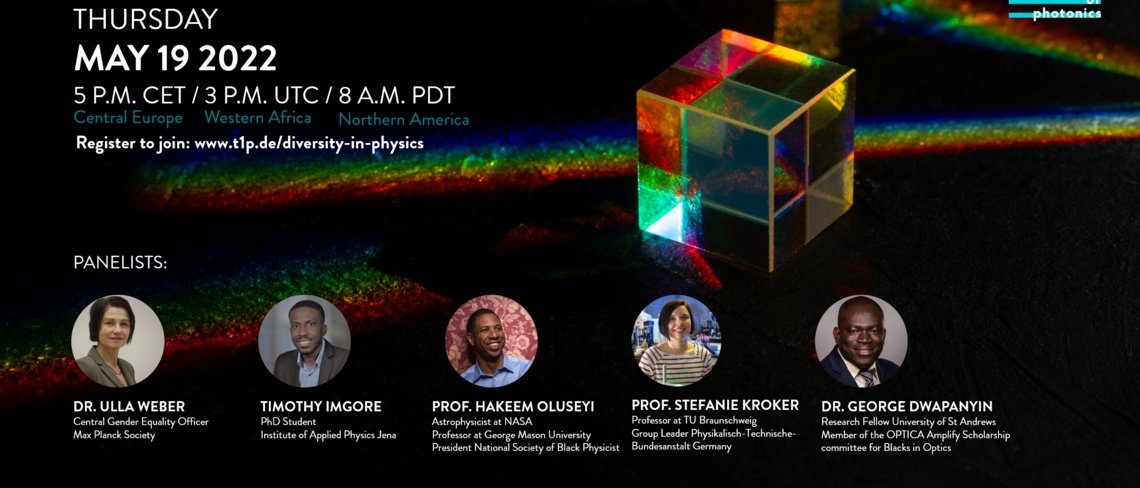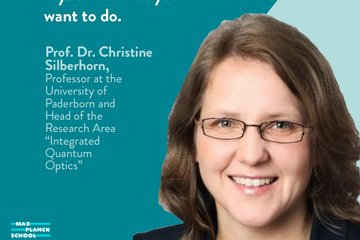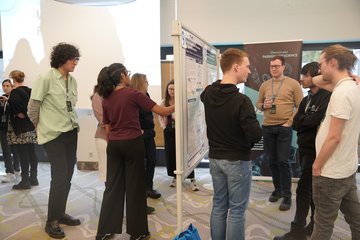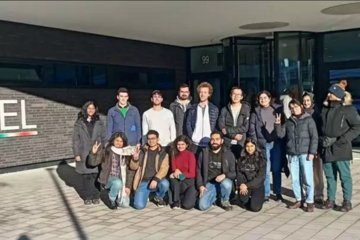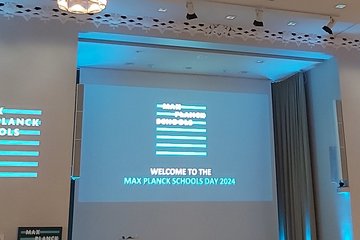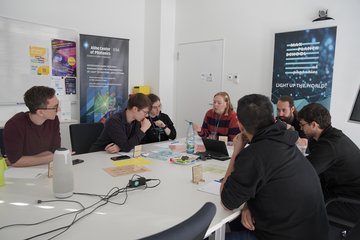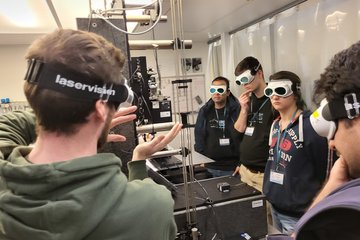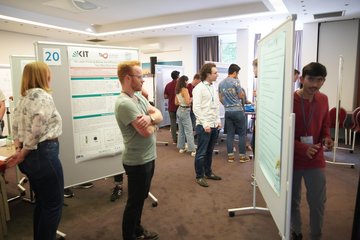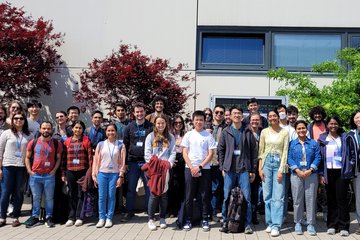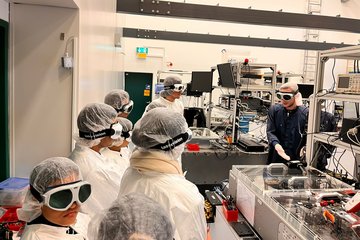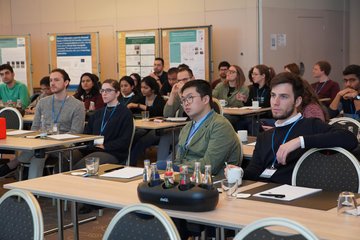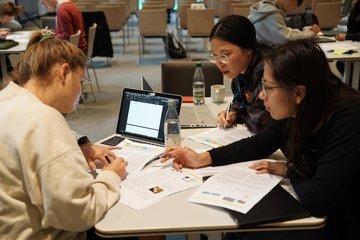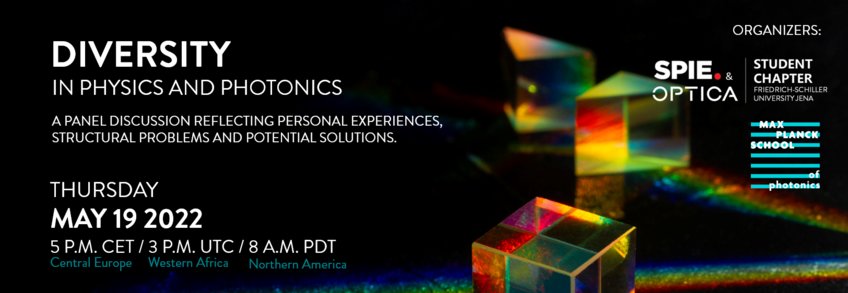
Diversity in Science – Event Series
Chances, Challenges, and Dimensions of Diversity: Lecture and Paneldiscussion
Diversity in Teams fosters creativity, productivity and more complex thinking (Antonio, 2004; Nathan & Lee, 2013). Yet research teams in photonics are only slowly becoming more diverse – but why? Are differences attracting each other, also in a scientific context, or do similar minds work better together after all? Our event series wants to take a closer look at diversity in science, and offer a platform to address the strengths and challenges of diverse teams.
Diversity has various dimensions: ethnic background, gender, sexual orientation and identification, and many more. What all dimensions have in common is that they enrich discussions and bring in new perspectives. Studies in the realm of marketing, management and law show that diversity in teams brings great advantages (Nathan & Neil, 2013; Sommers, 2006). Especially in science, diverse teams are more likely to be more innovative and expand the scope of research than homogenous teams. But more perspectives and experiences also bring challenges: How can we work up to the different skills of the members? How can everyone be individually encouraged? And how can we communicate with each other in an esteeming and sustainable way?
As part of our event series, we approached these questions in a lecture, and a panel discussion and will have workshops with our PhD candidates on it.
Recap Panel Discussion: Diversity in Physics and Photonics
Thursday, May 19 2022
This virtual panel discussion organized together with the joint SPIE and OPTICA student chapter Jena highlighted the topic of diversity in the field of physics and photonics. We had invited diversity experts as well as physicists who are themselves particularly involved into "diversity in research and teaching". We talked about the current status of diversity in physics by comparing different countries and perspectives. Furthermore, we got individual insights and talked about personal experiences of the panellist.
OUR PANELISTS WERE:
- DR. GEORGE DWAPANYIN is a Ghanaian national currently working as a research fellow with the Optical Manipulation Group at the University of St Andrews, UK. From 2010, he has almost always been the only person of colour in his academic/research groups and has experienced almost all that comes with belonging to the minority at the workplace. He will share some of his experiences as a panelist and how he copes with such situations.
- TIMOTHY IMGORE is currently a PhD student at the Institute of Applied Physics Jena. His research work focusses on tailoring the dispersion properties of fiber Bragg gratings in advanced fibers. He also served as a member of the OSA (now Optica) Diversity, Equity and Inclusion Rapid Action Committee (DEI-RAC) and contributed to the #WeAreOSA podcast on diversity.
- PROF. STEFANIE KROKER researches and teaches at the TU Braunschweig and Physikalisch-Technische Bundesanstalt (PTB) on „Optical Quantum Metrology", focusing on photonic systems for applications in optical precision and quantum experiments. This makes her one of just 13% female full professors in physics in Germany and worldwide.
- PROF. HAKEEM OLUSEYI is a former NASA astrophysicist, cosmologist, inventor, educator, science communicator, author, actor, and US army veteran. He is currently a professor at George Mason University, and he is the president of the National Society of Black Physicists. His book "A Quantum Life: My Unlikely Journey from the Street to the Stars" details his unlikely journey from a childhood of poverty and crime to a top-notch physics PhD program at Stanford University. His story has been an inspiration and motivation to many young stars in similar circumstances to aim for the stars.
- DR.in ULLA WEBER is the Central Gender Equality Officer of the Max Planck Society. In this role, she faces the challenge of implementing the theoretical concept of an intersectional gender equality approach, which connects the striving for gender and diversity equity, into practical gender equality work and concrete goals and measures. In doing so, she benefits from her many years of experience in gender equality research, work and policy in academia.
We would like to thank the panelists and the >40 participants in the audience for a great discussion. It’s outcome can be summarized as follows: To achieve more diversity in science, we need above all more role models from minorities who are given a chance to prove their skills - for example, through a quota. In addition, we need awareness for the topic, perseverance in addressing it again and again, and we all must learn to value, embrace, and use our differences to achieve greater good.
Recap Lecture: Why Should we Aim for Diversity?
In a keynote speech on 12.04.2022, Sanin Hasibović provided basic information on the dimensions of diversity and showed how we can deal with the challenges. He demonstrated how everyone is influenced by unconscious stereotypes - even if we don't want to be - and what we can do to not let these unconscious prejudices steer our behavior.
Using recent studies, he was also able to show that diversity in research teams actually has many benefits, resulting not only in better research output but also in diversification of research activities. But: This is only true if it is managed properly! Diversity just for the sake of diversity leads to increased communication problems and conflicts in teams. A poorly managed diverse team will therefore probably be less successful than a poorly managed homogeneous team. With this comes the call to all group leaders: invest time in diversity management and communication within the group, and you can achieve amazing results with diverse teams!
Sanin Hasibović, M.A./MES, is a trainer, mediator and coach. Due to several international degrees in journalism and communication studies, business administration, Eastern European studies and EU studies, among others, he has a broad interdisciplinary knowledge. His training and coaching focuses on international cooperation, diversity and unconscious bias.
References
Antonio, A. L., Chang, M. J., Hakuta, K., Kenny, D. A., Levin, S., & Milem, J. F. (2004). Effects of racial diversity on complex thinking in college students. Psychological Science, 15, 507–510.
Nathan, M., & Lee, N. (2013). Cultural diversity, innovation, and entrepreneurship: Firm-level evidence from London. Economic Geography, 89(4), 367–394. https://doi.org/10.1111/ecge.12016.
Sommers, S. R. (2006). On racial diversity and group decision making: Identifying multiple effects of racial composition on jury deliberations. Journal of Personality and Social Psychology, 90(4), 597–612. https://doi.org/10.1037/0022-3514.90.4.597.
